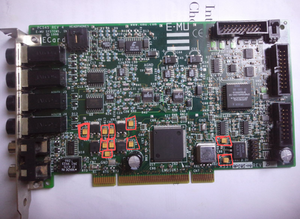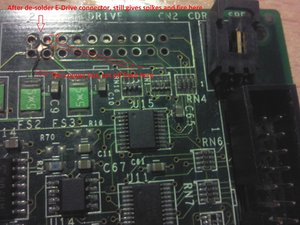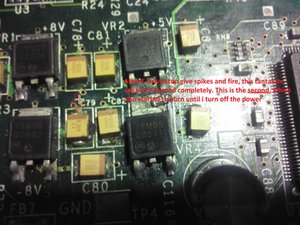Diagnose PCI Sound Card
About a EMU APS audio card (it is a PCI card, came out in 1999).
I had made it work with WinXP but after a re-installation of WinXP, and re-install the card (with the same drivers in the same PC), i have this problem :
I have install the drivers, and the card shows in the Device Manager and is enabled in the Mixer but it refused to play audio. It is strange because the peak meter on the Mixer application is moving, which indicates things should be working...
I am trying to make it work now and for 1,5 month with no luck. I have installed all the Windows OS : Win95, Win98, Win2000, WinMe, WinXP, WinVista (with drivers i found on web), but the card do not have sound, in all of these OS''s.
I also gave the card to a technician to examine it if there is a bad circuit, but he told me that the card seems to be OK but he is not 100% sure, and he do not have the time to examine it more closely, because he do these only for expensive cards. When i told him the this card cost, (back in 1999) 700$, he did not believe me.
Something tells me that there is something wrong in the card.
Is there a way to examine it, on board or off board to diagnose if there is something which became bad (a capacitor, a resistor or something else, like the output jacks) ?
Any tip or idea, will help.
Thanks
Audio Card front

Audio Card back

Electrolytic Capacitor no1

Electrolytic Capacitor no2

Tantalum cap

Tantalum caps that beeping continuously are in blue boxes

Dried transparent material around the two leads of one of the two electrolytic cap

Buses passes through near the two legs of the electrolytic capacitor

Burn Examine 1

Burn Examine 2

Unknown elements 1

Destroyed base

Unknown element 2 (the right one is damaged)

new desolder components

Components with no Volt 1

Components with no Volt 2

Is dit een goede vraag?

 4
4  3
3 
 29
29 


1 Opmerking
After seeing an EMU card repair video, I began to suspect the two capacitors on the card.
Can somebody tell, from the pictures, if one or both of these two capacitors are faulty ?
Or can somebody tell me how to check them ? I have a multi-meter.
door krakadoros